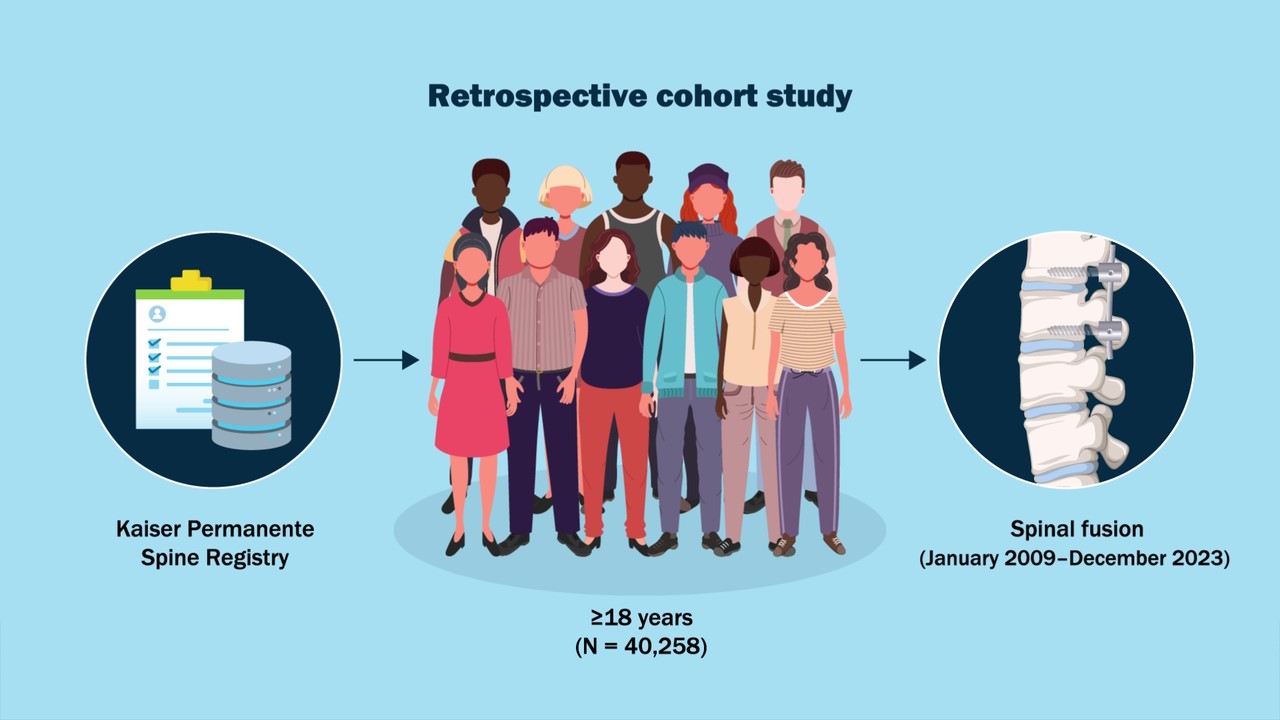Dr. Matt Schmitz, JBJS Senior Editor for Pediatrics and Social Media, highlights a new study that examines the association of race and ethnicity to spinal fusion outcomes in a managed care health system.
Multiple studies have shown that disparities in health care exist in the United States. It’s an issue that deserves study, to find solutions for improving outcomes for all patients.
Disparities in care based on race and ethnicity have been shown across many subspecialties, with insurance status and access to care potentially contributing to the differences.
In managed care models that provide members with equal access to care, do disparities persist? In a study published in the Sept 17, 2025 issue of The Journal, Guppy et al. examine whether there are racial and ethnic disparities in spinal fusion outcomes among patients enrolled in a managed care health-care system:
Association Between Race/Ethnicity and Spinal Fusion Outcomes in a Managed Health-Care Model
The investigators used data from the Kaiser Permanente (KP) Spine Registry in this retrospective cohort study. Included were 40,258 patients ≥18 years of age who underwent spinal fusion between January 2009 and December 2023. Race/ethnicity (White, Black, Hispanic, Asian) was the primary predictor, and the examined outcomes included reoperations, 90-day emergency department (ED) visits, readmissions, and mortality.
The results indicated that Black, Hispanic, and Asian patients had a lower risk of reoperation compared with White patients, with hazard ratios of 0.90, 0.78, and 0.62, respectively. However, Black patients (odds ratio [OR], 1.25) and Hispanic patients (OR, 1.15) had a higher likelihood of a 90-day ED visit compared with White patients, while Asian patients had a lower likelihood (OR, 0.82). Additionally, a higher likelihood of readmission within 90 days (OR, 1.18) was found for Black patients compared with White patients, while no significant difference was found for Hispanic patients, and a lower likelihood was found for Asian patients (OR, 0.84). No significant differences were observed in 90-day and 1-year mortality across racial/ethnic groups.
The study highlights that some disparities exist despite equal access to care in a managed health-care system. The authors suggest that factors such as distrust in the health-care system, underutilization of preventive care, and unfamiliarity with the managed care model may have contributed to these differences. They conclude that, while managed care networks like KP may reduce disparities in outcomes, more work is needed to address the ongoing inequities in care.
Only through study and better understanding of disparities can we develop potential solutions to overcome them, for the benefit of all of our patients.
Read the full study: Association Between Race/Ethnicity and Spinal Fusion Outcomes in a Managed Health-Care Model
JBJS Senior Editor for Pediatrics and Social Media




